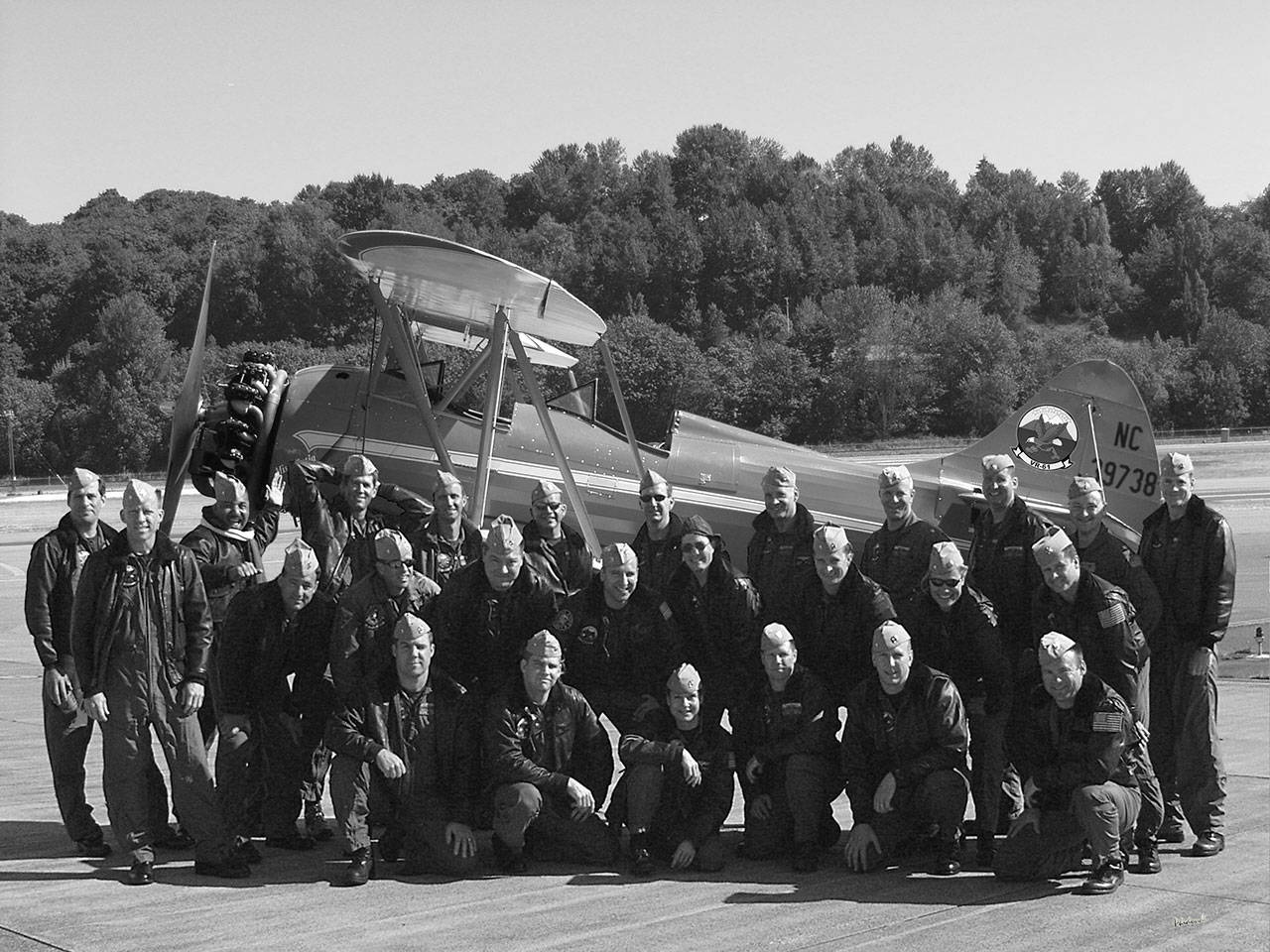What is a veteran? Oh, I know what it is supposed to be, someone who has served in the military, one branch or another, for long enough to receive that certificate of discharge.
But what is a veteran, really?
I was volunteering at the USO for several years after retiring from the Navy because I missed the service and wanted to be around veterans. I was so excited to meet a volunteer who was decked out in Marine Corps emblems that I asked if he was a retired Marine.
“I ask because I have two sons who are active-duty Marines, and I am retired Navy,” I said.
He said, no, he wasn’t retired, not seeming too impressed with my conversation.
I asked, “Oh. How long did you serve?”
He said, “18 months.”
Without thinking, I rudely spurted out: “I spent more time in the head than that.”
So? What is a veteran?
My father-in-law flew B-24 bombers over Germany in World War II, and experienced 35 missions and one crash in a field in occupied France, where he got his whole crew out and came home on leave. His father was shuffling through his flight log and, finding a record of 10 bombing runs over Hanover, Germany, said, “You bombed our family. You bombed my parents and your grandparents.”
His dad didn’t speak to him for more than five years, a crushing blow to that young man and my personal hero.
We hear so much about veterans, but who are they really and how should we treat them? Are they heroes because they spent time doing what all of us should in some form or another as young people? Is our life richer if we were to become a veteran? Should we hold them in awe for giving time in their lives to the rest of us?
I was one of the rejected who was unfortunate enough to return from Vietnam to Alameda, Calif., across the San Francisco Bay, a real anti-war melting pot in 1966. I didn’t know that I was rejected because I had been way out of touch for the greater part of two years. I had answered President Johnson’s request for volunteers to go to Vietnam, being told that my life expectancy would be 3½ minutes and had just been a part of the first bombing of Hanoi and the Haiphong Harbor oil fields. I was pumped and just glad to be alive.
So I ask you, what is a veteran and how should we look at them? How should we treat them?
A veteran is someone who got excited as a young person to serve their country, really not realizing what it would all entail but being ready to accept what the recruiter told them, and what the recruiter didn’t tell them. Something happened to them along the way that caused them to stand straighter, live better with less money, walk longer and farther and appreciate more.
They accepted more responsibility at a very young age and caused their parents to glow with pride without understanding their sons or daughters anymore. When they came home the whole family glowed and when they left to go back to their unit, the whole family feared and lived with a continuing pain in their stomach.
How should we treat them? Love them for what they have given. Support them for what they have offered to you, your family, your livelihood and your protection. Just don’t forget to remember those who have given their lives.
I cannot relate to you the number of aluminum caskets that I had helped carry to cold storage rooms, the warm tears that were lost for knowing what was inside. As age runs the distance, left now, I can’t help but to picture those of 18, those of 19 years, young people in their 20s who lay still forever, and leave a family behind. Those young people who have given limbs, and after wars are long over, still live without them. Understand them, as the gift that they have given to us. Understand them as the protection that they have strove to bring and maintain for us, you, me, our loved ones, personally.
How should we be thankful? You can tell by how they stand tall, even the old ones, from the training of all those years ago. The ball cap with a unit emblem, the shirt that they still wear proudly, the pride of just serving, popping through that chest from the heart. Their willingness to help still living in their soul.
Make Veterans Day a way of life, a way of thank you.
Don Dinsmore, a longtime Kent resident and Navy veteran, regularly contributes to the Kent Reporter.
Talk to us
Please share your story tips by emailing editor@kentreporter.com.
To share your opinion for publication, submit a letter through our website https://www.kentreporter.com/submit-letter/. Include your name, address and daytime phone number. (We’ll only publish your name and hometown.) Please keep letters to 300 words or less.

